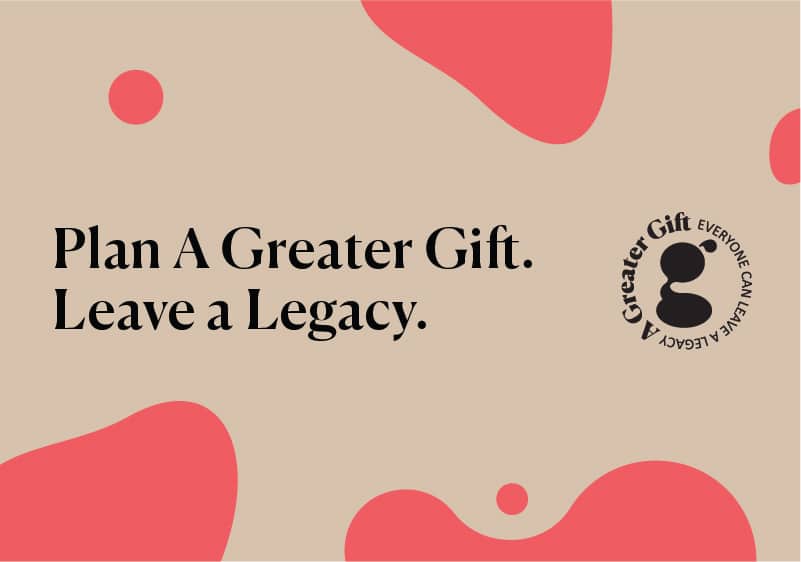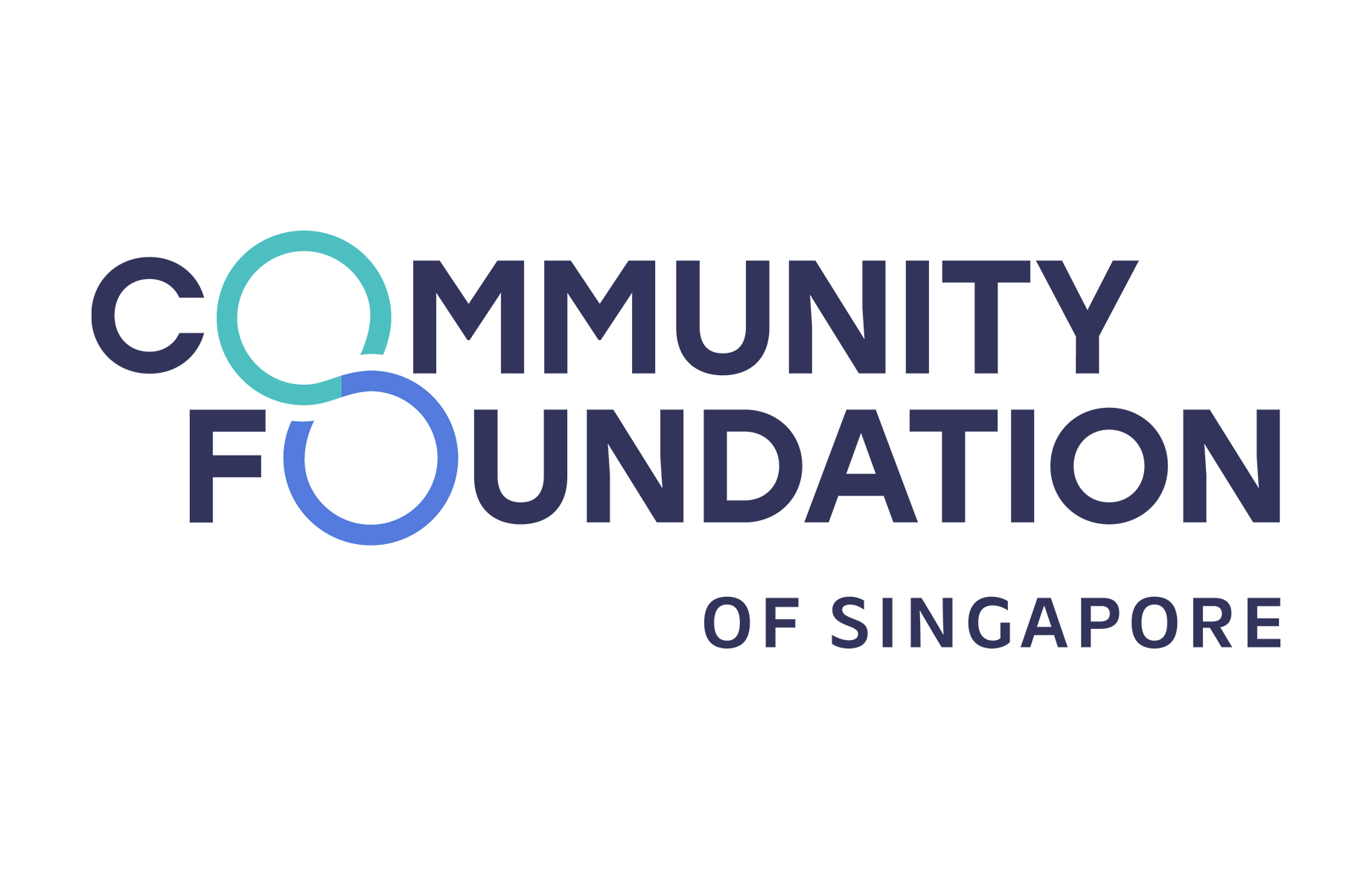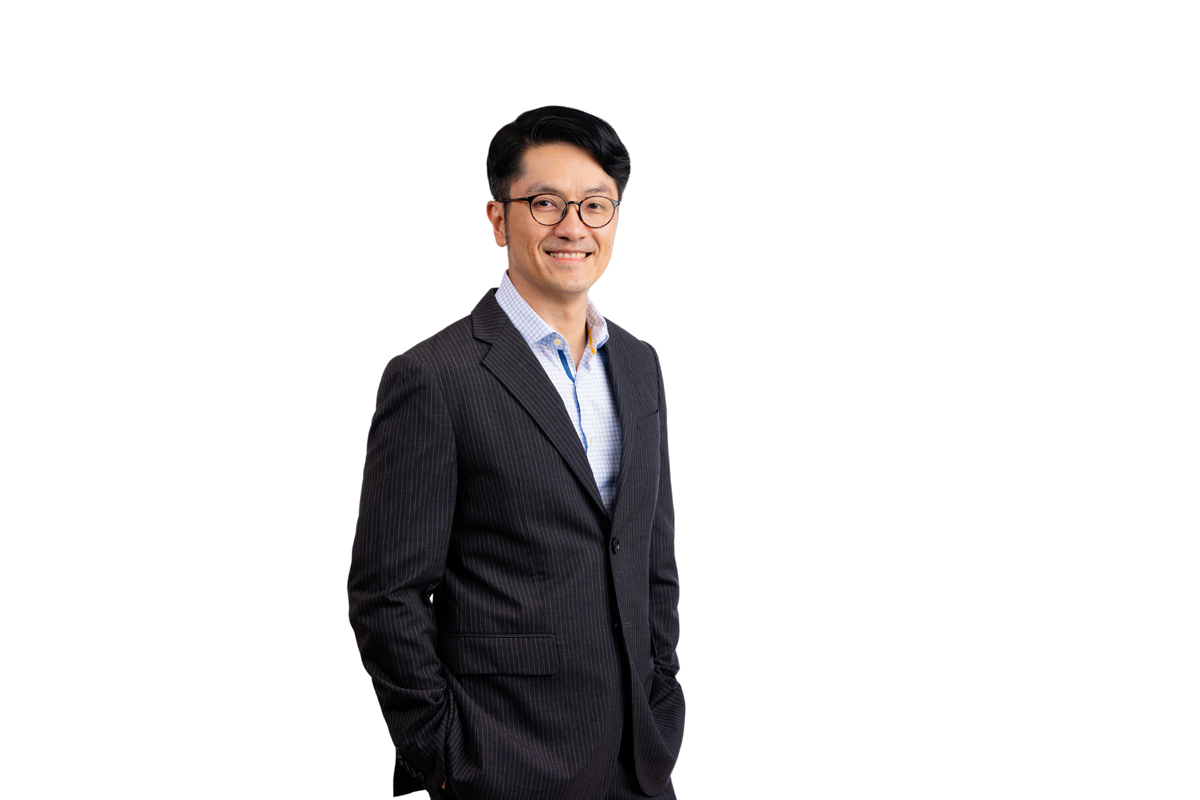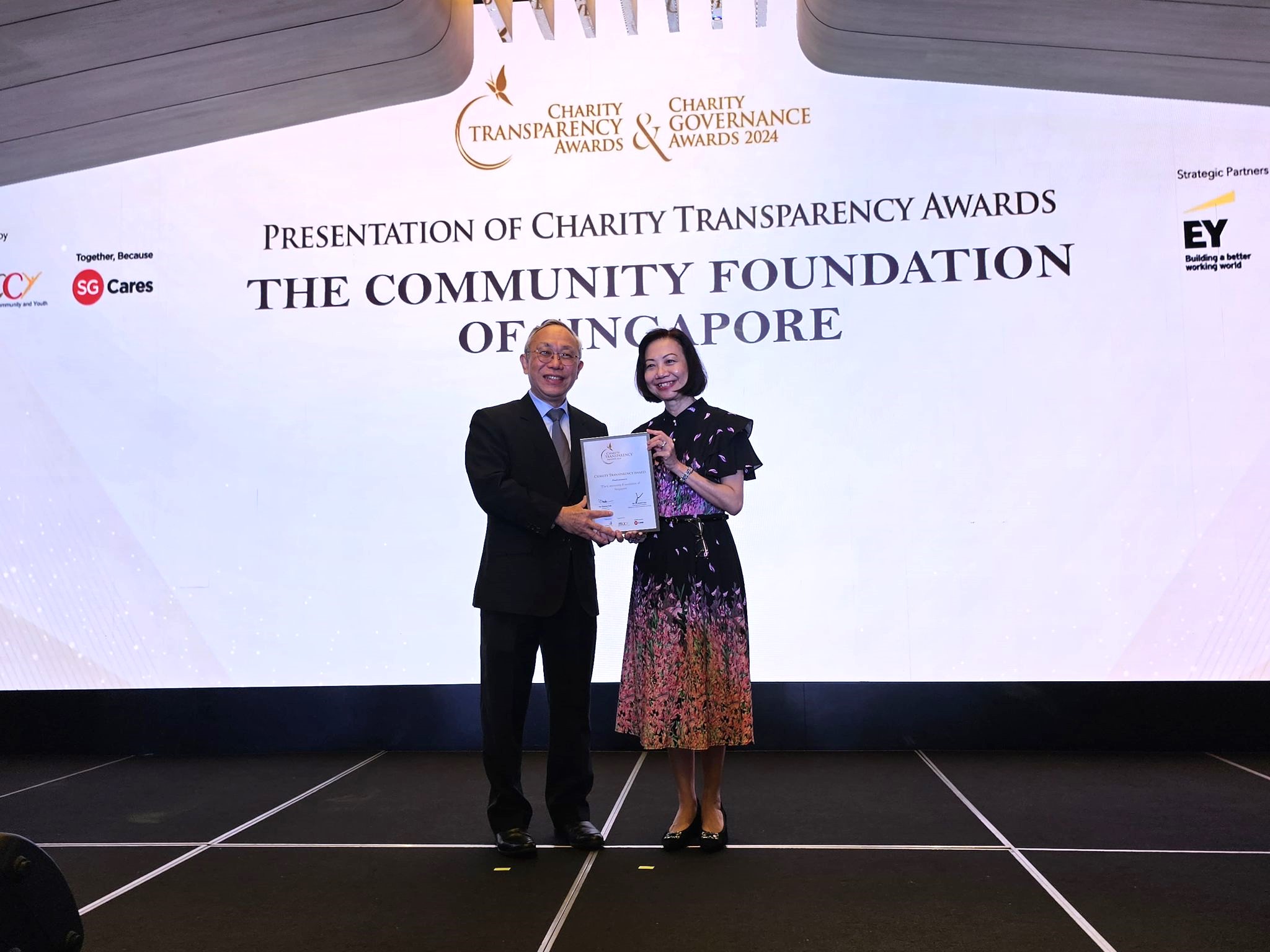National Legacy Giving initiative to inspire philanthropic culture in Singapore


Private philanthropy has an important role to play in providing much needed support for the community. The Community Foundation of Singapore (CFS) kicks off this initiative today with “A Greater Gift” campaign, to boost awareness and drive conversations for legacy giving and its value to the community.
According to a Social Pulse Survey 1, there is a disconnect between awareness and action when it comes to legacy giving. While the majority of respondents (83%) flagged awareness on what legacy giving is, only 33 per cent is considering legacy as a means of giving, but only 3 per cent would take action.
CFS’ “A Greater Gift’’ campaign, which is digitally-led, will run over the next three months, inviting individuals, professional advisors, and charities to consider ways a legacy gift can provide meaningful support and leave a lasting impact. As part of the campaign, CFS has partnered with ambassadors to highlight the causes they support, capturing what inspired their interests in a particular cause and the legacy they wish to leave.
Going forward, CFS will work with professional advisors by providing them with resources to help them ignite conversations with clients. We will support charities, especially the smaller ones, which may not be equipped to engage legacy donors.
Legacy gifts can be broadly defined as planned, future donations to charities. While up to the individual, the gift can be cash, marketable securities, insurance payouts, CPF monies and marketable assets. Individuals looking to support a cause over a period of years can establish a donor-advised fund (DAF) with CFS, to manage grant distributions
CFS was selected to lead the Legacy Giving Initiative with its strong track record and deep experience in advisory and grant making. As a neutral entity not attached to a specific cause, CFS complements the philanthropy landscape by bridging donor intentions to causes and charities.
Mr. Edwin Tong, Minister for Culture, Community and Youth & Second Minister for Law said, “Legacy giving enables Singaporeans to leave a lasting and meaningful gift to society. We hope that more Singaporeans will consider planning their donations for the future, as it can help support our charities, and spread the spirit of SG Cares across generations. Thank you to the Community Foundation of Singapore for leading the Legacy Giving Initiative, and encouraging Singaporeans to contribute to a more caring and inclusive society.”
CFS Brand Ambassadors
- Dr. Audrey Looi and Dr. Ang Beng Ti – An eye specialist and neurosurgeon respectively, this husband and wife duo have made it their mission to equip children with low-vision with skills and resources. After personally experiencing a gap in supporting their son who has a degenerative eye disorder, they committed to supporting the visually impaired via iC2 PrepHouse.
- Nadia Ahmad Samdin – A lawyer whose own personal journey of receiving financial assistance in school has led her to championing support for at-risk youth and their families, who will particularly benefit from having steady care.
- Dipa Swaminathan – A lawyer and TEDx speaker, her passion to improve the welfare of migrant workers here has led her to set up social initiative ItsRainingRaincoats in 2015, which has especially increased society’s kindness and compassion for this community at the height of the pandemic.
- Hian Goh – An entrepreneur and venture capitalist who wants to contribute to the future of society by identifying the next big game-changers and creating opportunities for innovators to reach their full potential.
- Kris Tan – A philanthropist dedicated to empowering the arts in Singapore. She set up a charitable fund with CFS, Kris Foundation, in 2009 to support young classical musicians in Singapore and will expand it to the wider arts community.
About Legacy Giving
The legacy giving campaign is part of a three-year Legacy Giving Initiative (LGI). This campaign will highlight that everyone can contribute to the community through a legacy gift, either through CFS or directly to a charity. The LGI will build awareness by helping individuals understand the ways to give and the value of planned gifts to charity. It will also support professional advisors working with clients and charities engaging their donors in philanthropy conversations. CFS is well placed to drive this initiative.
As Singapore’s only community foundation, it is a neutral philanthropy resource with experience in grantmaking advisory. Visit legacygiving.sg
1The Social Pulse Survey was started in 2016 as an on-going survey carried out by The Ministry for Culture, Community and Youth (MCCY) to gather Singaporeans’ opinions and involvement with regard to matters such as sports, arts, culture and community living. Each month, about 500 interviews are conducted face-to-face with randomly selected households, and residents aged 15 and over across Singapore. The survey sample is representative of Singapore’s resident population.
Private philanthropy has an important role to play in providing much needed support for the community. The Community Foundation of Singapore (CFS) kicks off this initiative today with “A Greater Gift” campaign, to boost awareness and drive conversations for legacy giving and its value to the community.
According to a Social Pulse Survey 1, there is a disconnect between awareness and action when it comes to legacy giving. While the majority of respondents (83%) flagged awareness on what legacy giving is, only 33 per cent is considering legacy as a means of giving, but only 3 per cent would take action.
CFS’ “A Greater Gift’’ campaign, which is digitally-led, will run over the next three months, inviting individuals, professional advisors, and charities to consider ways a legacy gift can provide meaningful support and leave a lasting impact. As part of the campaign, CFS has partnered with ambassadors to highlight the causes they support, capturing what inspired their interests in a particular cause and the legacy they wish to leave.
Going forward, CFS will work with professional advisors by providing them with resources to help them ignite conversations with clients. We will support charities, especially the smaller ones, which may not be equipped to engage legacy donors.
Legacy gifts can be broadly defined as planned, future donations to charities. While up to the individual, the gift can be cash, marketable securities, insurance payouts, CPF monies and marketable assets. Individuals looking to support a cause over a period of years can establish a donor-advised fund (DAF) with CFS, to manage grant distributions
CFS was selected to lead the Legacy Giving Initiative with its strong track record and deep experience in advisory and grant making. As a neutral entity not attached to a specific cause, CFS complements the philanthropy landscape by bridging donor intentions to causes and charities.
Mr. Edwin Tong, Minister for Culture, Community and Youth & Second Minister for Law said, “Legacy giving enables Singaporeans to leave a lasting and meaningful gift to society. We hope that more Singaporeans will consider planning their donations for the future, as it can help support our charities, and spread the spirit of SG Cares across generations. Thank you to the Community Foundation of Singapore for leading the Legacy Giving Initiative, and encouraging Singaporeans to contribute to a more caring and inclusive society.”
CFS Brand Ambassadors
- Dr. Audrey Looi and Dr. Ang Beng Ti – An eye specialist and neurosurgeon respectively, this husband and wife duo have made it their mission to equip children with low-vision with skills and resources. After personally experiencing a gap in supporting their son who has a degenerative eye disorder, they committed to supporting the visually impaired via iC2 PrepHouse.
- Nadia Ahmad Samdin – A lawyer whose own personal journey of receiving financial assistance in school has led her to championing support for at-risk youth and their families, who will particularly benefit from having steady care.
- Dipa Swaminathan – A lawyer and TEDx speaker, her passion to improve the welfare of migrant workers here has led her to set up social initiative ItsRainingRaincoats in 2015, which has especially increased society’s kindness and compassion for this community at the height of the pandemic.
- Hian Goh – An entrepreneur and venture capitalist who wants to contribute to the future of society by identifying the next big game-changers and creating opportunities for innovators to reach their full potential.
- Kris Tan – A philanthropist dedicated to empowering the arts in Singapore. She set up a charitable fund with CFS, Kris Foundation, in 2009 to support young classical musicians in Singapore and will expand it to the wider arts community.
About Legacy Giving
The legacy giving campaign is part of a three-year Legacy Giving Initiative (LGI). This campaign will highlight that everyone can contribute to the community through a legacy gift, either through CFS or directly to a charity. The LGI will build awareness by helping individuals understand the ways to give and the value of planned gifts to charity. It will also support professional advisors working with clients and charities engaging their donors in philanthropy conversations. CFS is well placed to drive this initiative.
As Singapore’s only community foundation, it is a neutral philanthropy resource with experience in grantmaking advisory. Visit legacygiving.sg
1The Social Pulse Survey was started in 2016 as an on-going survey carried out by The Ministry for Culture, Community and Youth (MCCY) to gather Singaporeans’ opinions and involvement with regard to matters such as sports, arts, culture and community living. Each month, about 500 interviews are conducted face-to-face with randomly selected households, and residents aged 15 and over across Singapore. The survey sample is representative of Singapore’s resident population.
- Related Topics For You: CHARITY STORIES, DONOR STORIES, DONOR-ADVISED FUND, LEGACY GIVING, NEWS



